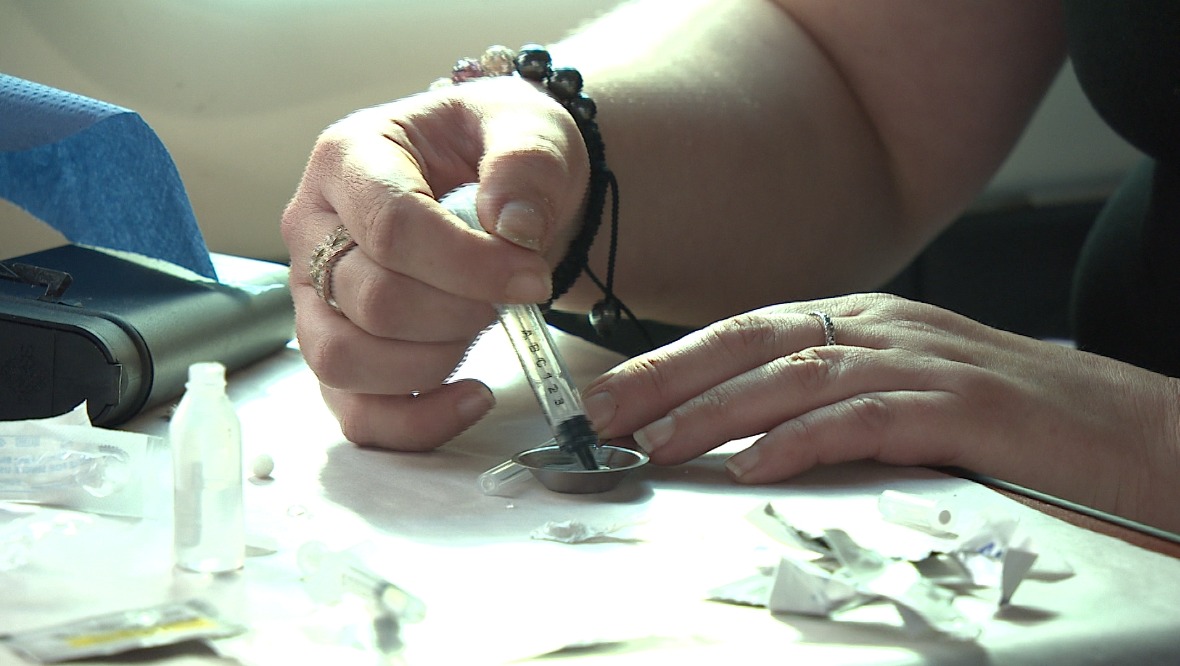An organisation has said that serious consideration should be given to decriminalising drug use to help tackle the “national emergency” of drug-related deaths in Scotland.
The Royal College of Physicians of Edinburgh also recommends the introduction of a drugs consumption room and a heroin-assisted treatment programme in all major centres in Scotland.
There were 1,264 drug-related deaths recorded in Scotland during 2019, a rise of 6% on 2018 when 1,187 drug related deaths were recorded, according to National Records of Scotland (NRS) data.
The 2019 rate for deaths which involved substance use in Scotland was higher than across all EU countries and more than three times the UK as a whole.
In a report published on Tuesday, the Royal College of Physicians of Edinburgh said the Scottish and UK Governments must work together to build a consensus and must see drug-related deaths as a public health issue and not a political issue.
Professor Angela Thomas, acting president of the college, said: “Our report follows the recent revelation by the National Records of Scotland that the number of drug-related deaths in Scotland grew 6% during 2019.
“Each death represents the life of someone who had friends, family and support networks who cared deeply about them, which is absolutely heart-breaking.
“Many of the college’s fellows and members regularly treat and consult with people who use drugs, and I know that the recent NRS data will be of great concern to them.
“Our report proposes some key interventions which can be taken now including the introduction of a drugs consumption room, and a heroin-assisted treatment programme in all major centres in Scotland as we see already at the Glasgow pilot scheme.
“Decriminalising drug use should be considered in Scotland, and the college would urge the UK Government and the Scottish Government to work collaboratively on this key policy area.”
The college said it supports targeted harm reduction measures including the administration of Naloxone, an emergency antidote to treat drug overdose victims, which is advocated by the Drug Deaths Taskforce.
The report makes a number of recommendations including that the UK Government and Scottish Government must work together to address the socio-economic factors associated with drug use.
It also said that medical leaders must support educational initiatives which maximise the involvement of all sectors of medicine in managing problems related to drug and alcohol dependency.
Prof Roy Robertson, GP and Professor of Addiction Medicine at the University of Edinburgh, said: “The excessive numbers of drug-related deaths in Scotland is a national emergency, indicating a lack of investment in drug services.”
He added: “Urgent investment and policy responses require a collaborative approach between government, public health agencies, political parties and the clinicians who are dealing with the crisis on the front line.
Kit Malthouse, UK Minister for Crime and Policing, said: “There are no UK Government plans to decriminalise drug possession.
“It would not eliminate the crime committed as a result of the illicit trade, nor would it address the harms associated with drug dependence and the misery that this can cause to families and communities.
“The Government is committed to working with the devolved administration in Scotland to tackle drug misuse and in 2020 I held a UK-wide drugs summit in Glasgow with a follow-up UK Drugs Ministerial in September, bringing together a range of experts.”
Scotland’s drugs policy minister, Angela Constance MSP, said: “Every death related to drug use is a tragedy and impacts on individuals families and communities across Scotland.
“I have been engaging with the medical community and look forward to working with the Royal College of Physicians as we take forward heroin-assisted treatment and other work on harm reduction.
“As the report says, there are no simple or quick solutions to the complex and longstanding issues related to drug use, but we’ve committed additional investment of £250m over the next five years, as well as an additional £5m in the current financial year, to address drugs misuse and will look at any approaches that have a strong evidence base that may be able to help save lives.”
Follow STV News on WhatsApp
Scan the QR code on your mobile device for all the latest news from around the country


 STV News
STV News
























